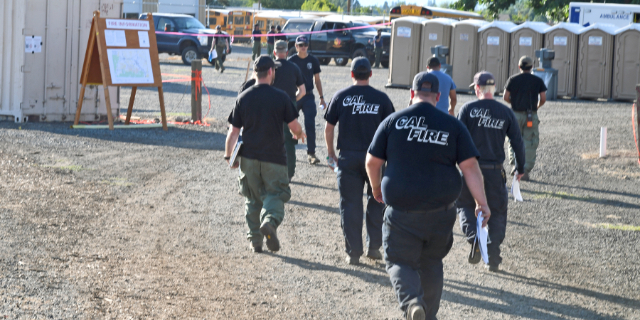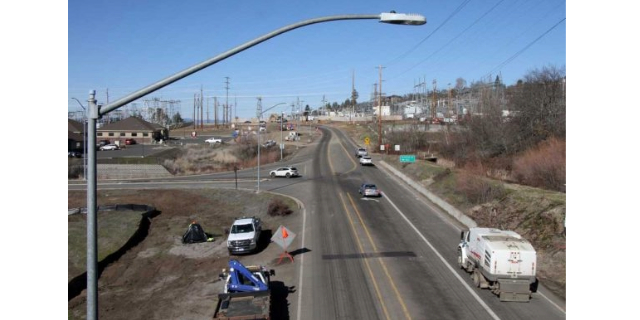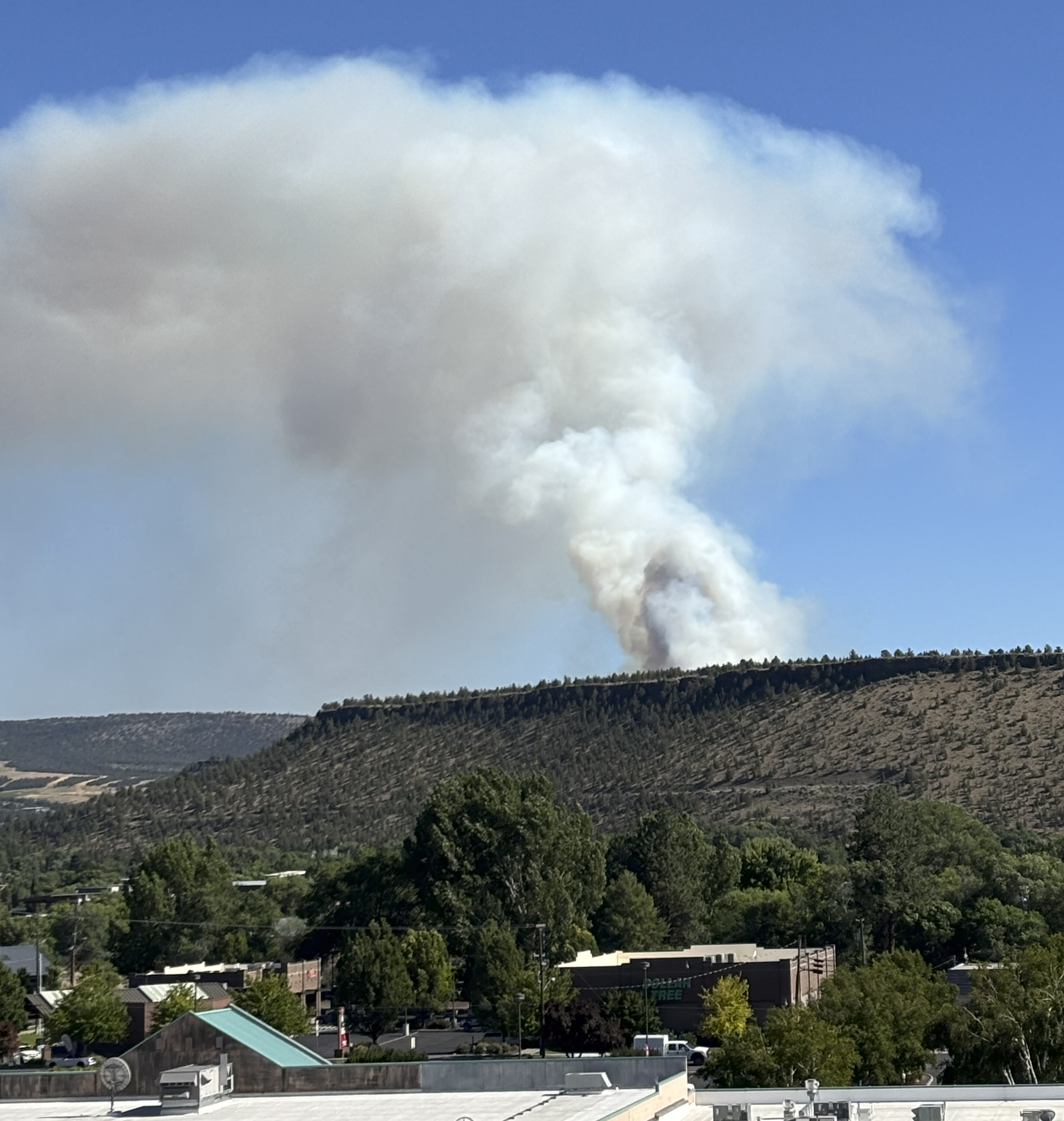‘They are not pumping out students as much’
Published 6:00 am Friday, July 28, 2023

- Dr. Holly Slater and a veterinarian technician check the paws of Archie, a Pyrenees mix, during a wellness checkup at Companion Animal Clinic in Roseburg Monday afternoon.
For nearly two years Roseburg has experienced a shortage of veterinarians. This deficit has resulted in animal clinics being backed up for as long as three months and forced residents of Douglas County to seek care in places like Bend or Eugene.
Trending
This is a problem shared on the state and national level. Oregon, as a whole, struggles to fill the gaps. Oregon State University’s Carlson College of Veterinary Medicine has a total of 1,701 alumni since its first graduating class in 1983. This year, the school’s total number of enrolled students is 358, according to the school’s website.
“We just graduated 73 new veterinarians a few weeks ago. Of those, 15 are going into mixed animal, livestock or equine practices. Thirty-nine are staying in Oregon,” said Susan Tornquist, dean of Oregon State University’s Carlson College of Veterinary Medicine in Corvallis. “Also, in rural areas and particularly in mixed animal or large animal practices, the veterinarians are on call more often and working very long hours at times. That may or may not be the case in urban areas and in small animal practices where clients/patients can go to emergency clinics that are staffed by doctors that don’t work both daytime and nighttime hours.”
Torquist went on to say that, of those 73 students, many have student debt averaging at $148,973, which “has a significant impact on the jobs they take after graduation.”
Trending
Many newly graduated veterinarians prefer to begin their career in metropolitan areas like Portland. Compared to Portland, Roseburg veterinarian clinics simply cannot compete with the wages offered at metro clinics.
“I feel like there’s always been a shortage, even when I went to school in 2013. I got recruited out here and even then, it was difficult to get a job anywhere,” said Companion Animal Clinic Owner and Veterinarian Dr. Holly Slater said. “There are only 33 veterinarian schools in the U.S. and they are not pumping out students as much.”
Slater said within the last couple of years, COVID-19 brought along what she describes as a pet boom. As lockdowns became standard practice across the nation, more people were making additions to the household in the form of pets.
Companion Animal Clinic, which has thousands of clients and patients, could not keep up with the sudden spike in new clients. In order to retain their existing clientele, the clinic was forced to make a change.
“We had realized our front waiting room was filled with new clients or non-clients and our existing clients who had been with us and relied on us for many years were not able to get in,” said Companion Animal Clinic Owner and Manager Rasha Van Beek. “In that moment we decided we could not take on any new clients. It’s really been a struggle. That is not ideal, that is not what we want to do but we can only do so much in a day.”
Even with this change, Companion Animal Clinic has a three month waitlist for wellness visits. This has caused some clients to seek help outside of Roseburg. If a client needs 24-hour care or is in an emergency situation, the clinic recommends traveling to Eugene or Central Point.
Saving Grace Pet Adoption Center is feeling its own pressure with the veterinarian shortage. Executive Director Megan Gram said the problem has been getting progressively worse in her three years at the animal shelter.
“It is a problem on an international level, it’s definitely a problem that has been heightened in the U.S. since COVID, and I would say Roseburg compared to the rest of the U.S. is almost the worst of the worst. It’s pretty bad,” Gram said.
Gram described Saving Grace as the canary in the coal mine when the shortage began in Roseburg. Gram said many people surrendered their pets to Saving Grace because not only could people not find the necessary care for their pets, but they could not afford it.
“We can kind of get a good pulse on the community based on the phone calls we are receiving at the shelter and I would say 50% of our phone calls are people asking for affordable and accessible spay and neuter services that they can’t find anywhere else,” she said.
Gram went on to say that with no plan in place on a national level, not enough students graduating from college and small clinics being unable to compete with city wages, the crisis will not end anytime soon.
“Eventually we will look for another vet,” Slater said. “We have four, but then we would need to add on to our building. For one vet, there needs to be three to four technicians to be able to have maximum efficiency.”
Technicians are what a nurse is to a doctor. They draw blood, take X-rays and other work that veterinarians do not have time to do.
“I think they deal with this in human medicine as well. Getting doctors to rural areas is difficult. I think we deal with that same issue,” Van Beek said. “Same thing with our licensed technicians, they graduate out of Portland and to get them to come past that area is difficult. We do try to offer a decent pay for the area.”
As for a solution, with how busy Companion Animal Clinic gets, both Van Beek and Slater are more concerned with the quality of care they are able to provide for their current clients. However, Gram has some idea of how to start approaching the crisis. Although, it will take some considerable time before any kind of relief can be implemented.
“Right now, the way it’s structured, every state has different rules and regulations for veterinarians to practice in each state. So, you have to have a license in each separate state to practice there but if there was a way that the national veterinary board could have a special license where vets could travel between states and offer their services in areas with the greatest need might help,” Gram said.
Currently, the consensus between Slater, Van Beek and Gram is to plan ahead as much as possible: Call ahead of time, reach out to as many clinics as you can and expect a drive to an outlying town. However, clinics like Companion Animal Clinic will stabilize a patient in emergency situations.









